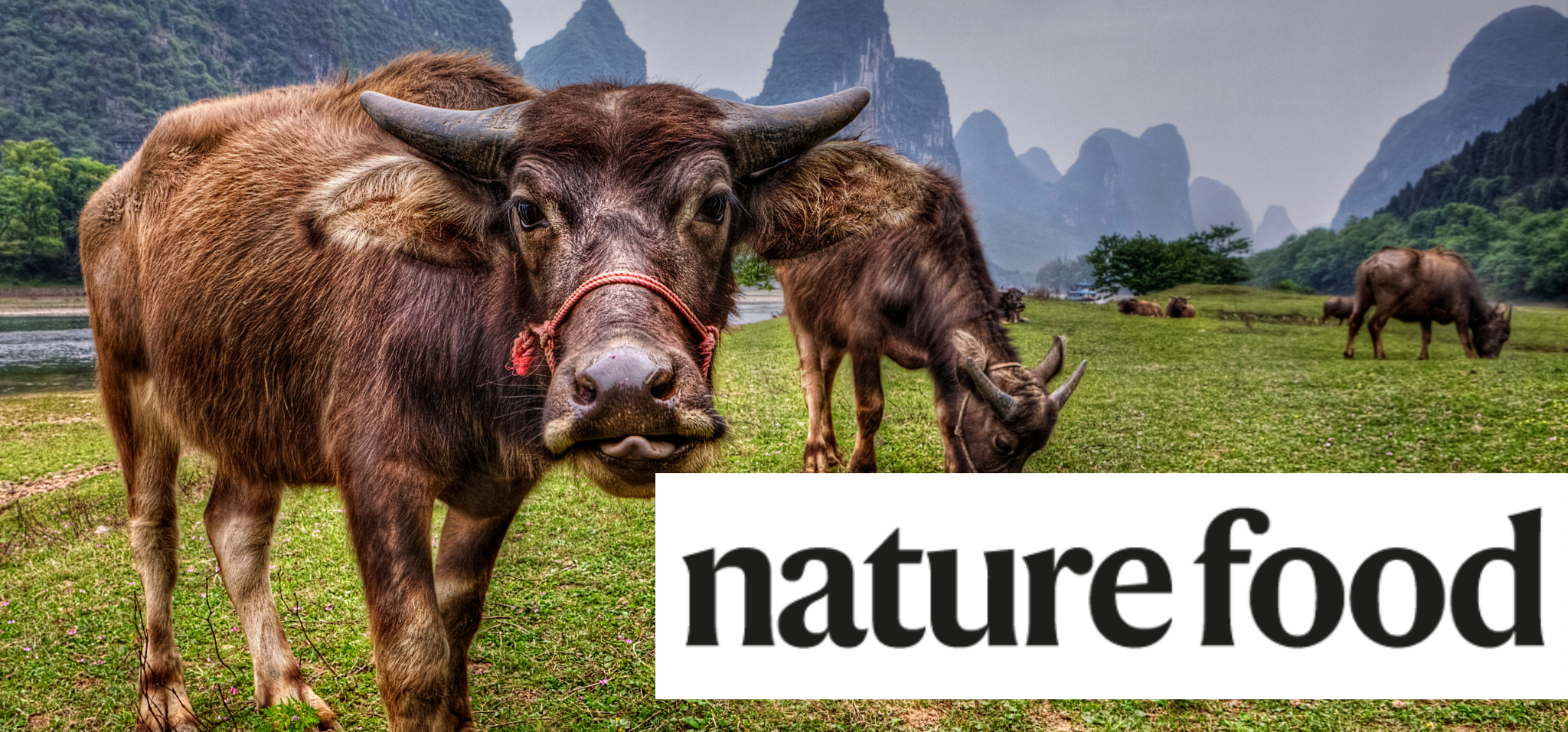
Authors: Hao Zhao, Xiangwen Fan, Zhaohai Bai, Lin Ma, Chao Wang, Petr Havlík, Zhenling Cui, Juraj Balkovic, Mario Herrero, Zhou Shi & Jinfeng Chang.
Abstract
China’s imports of livestock feed, particularly protein-rich feeds, pose challenges to global environmental sustainability. Achieving protein self-sufficiency for food and feed in China without exceeding environmental boundaries requires integrated measures and optimization of China’s food system.
Here we propose holistic food system innovation strategies consisting of three components—technological innovation, integrated spatial planning and demand-side options—to reduce protein import dependency and promote global environmental sustainability.
We find that food system innovations can close almost 80% of China’s future protein gaps while reducing 57–85% of agricultural import-embodied environmental impacts. Deploying these innovations would also reduce greenhouse gas emissions (22–27%) and people’s harmful exposure to ammonia (73–81%) compared with the baseline scenario in 2050. Technological innovations play a key role in closing protein gaps, while integrated crop–livestock spatial planning is imperative for achieving environmental and health targets.